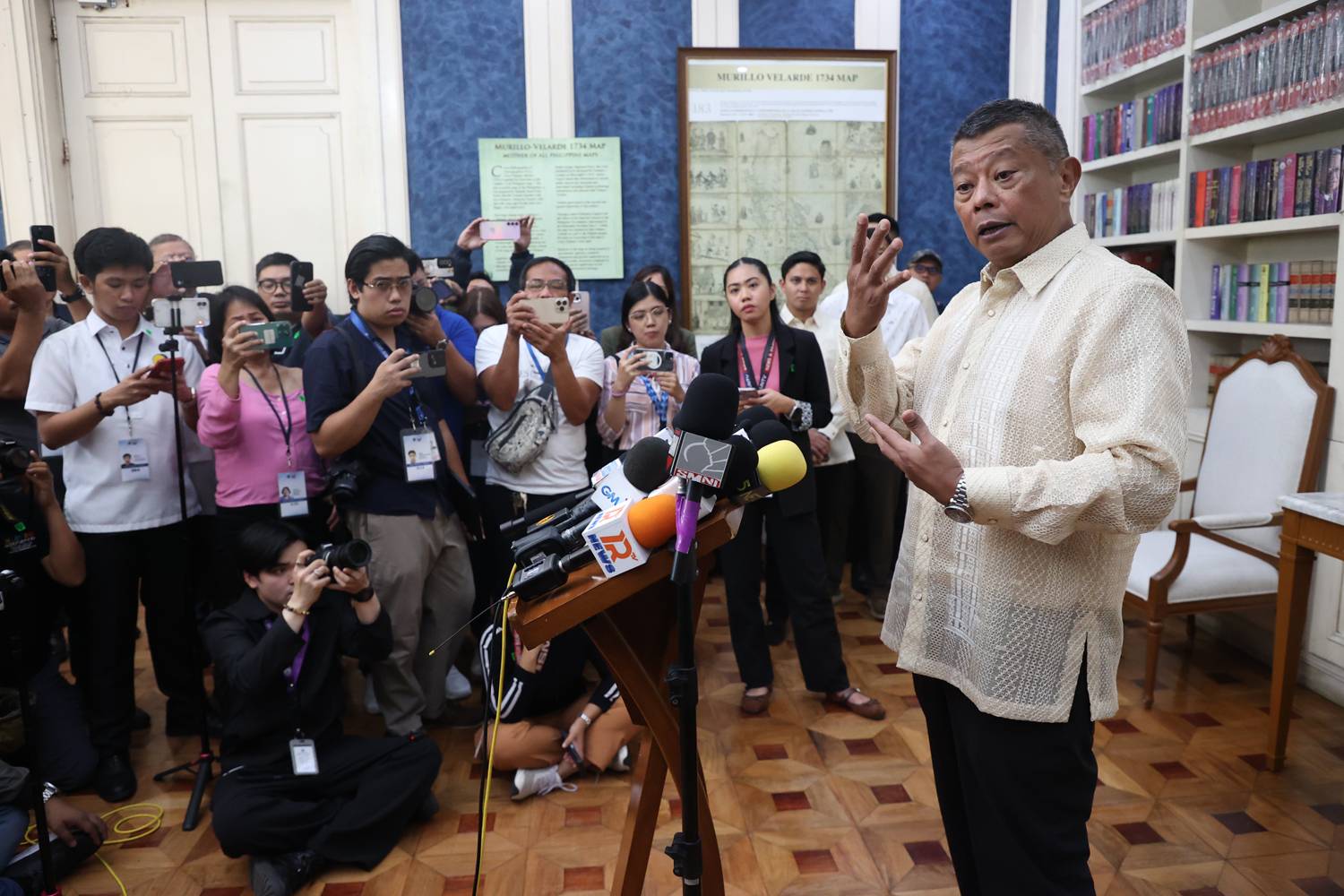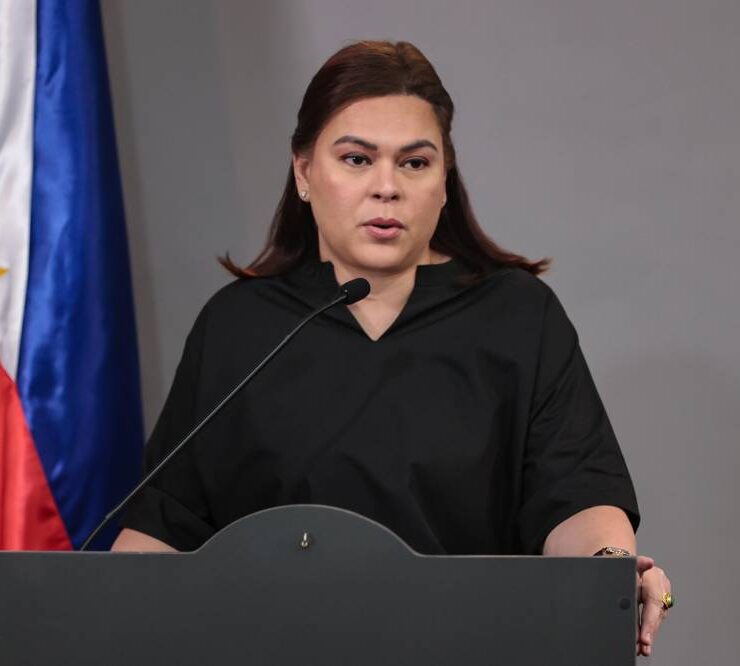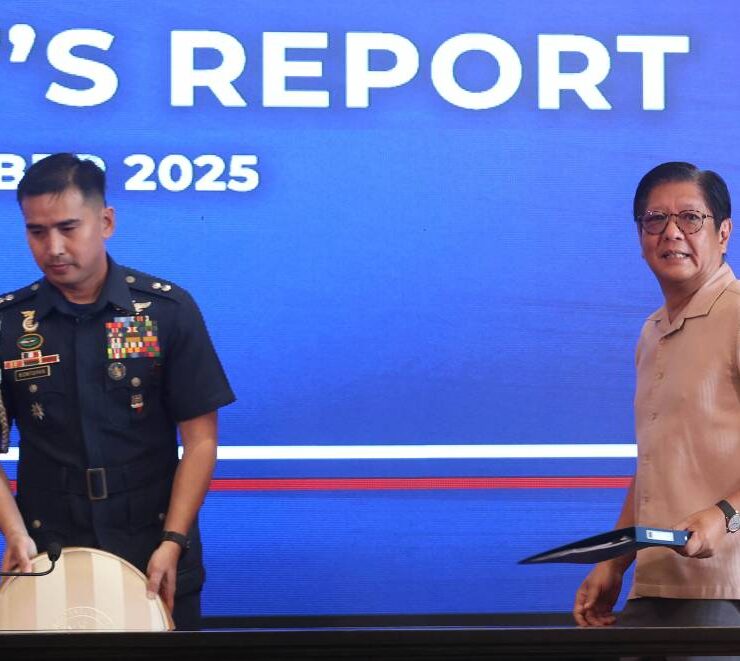Ombudsman lifts tough barriers to SALN access

Journalists can again access a government official’s statement of assets, liabilities and net worth (SALN), minus sensitive personal information, but will need to submit a copy of their report within five days of publication to the Office of the Ombudsman.
Ombudsman Jesus Crispin Remulla spelled this out in a memorandum he issued on Tuesday afternoon lifting restrictions on public access to officials’ SALNs on certain conditions in a bid to protect the officials’ privacy.
Despite the limitations, it marked a refreshing departure from the policy of his predecessor, Samuel Martires, who, in 2020, set stringent conditions for the documents’ release.
Martires then issued a memo allowing access to SALNs only if there’s a notarized consent from the officials concerned; if there’s a court order for its release in relation to a pending case; and if the Office of the Ombudsman’s field investigators need the records for a fact-finding probe.
Two valid IDs, fees
In defense of his policy, Martires said SALNs had been weaponized to damage the reputation of a government official or a political rival.
But this time, according to Remulla’s memo, journalists and the public need only to present two valid IDs and pay for reproduction or certification fee to request a copy of an official’s SALN.
“As of today, and as the memorandum circular is written, there is no need for consent on the part of the public officer whose SALN is requested,” Assistant Ombudsman Mico Clavano told reporters.
“The only thing that the requesting party needs to show is ID and to make sure that he is not a fictitious person, that he is indeed the person that he purports to be … That’s it, and it will be granted.”
The memo opens with a citation of various laws, starting with the Constitution, requiring public officers or employees to declare their SALN under oath, and recognizing the public’s “right to know” their financial and business interests.
The memo did not give a specific reason why the media should formally submit a copy of SALN-based reports to the Ombudsman.
The SALNs of President Marcos, his predecessor Rodrigo Duterte, who appointed Martires as Ombudsman, and his daughter, Vice President Sara Duterte, will be among those accessible under Memorandum Circular No. 3, Remulla had earlier said.
Malacañang assured the public that all members of the executive branch, including Mr. Marcos, would comply with the Ombudsman’s directive.
“Whatever is proper, lawful, and beneficial in fighting corruption, everyone in the executive department will comply with,” Palace press officer Claire Castro said.
Asked if the President would be willing to release his own SALN upon request, she replied, “All of the members of the executive department are ready.”
The last publicly available SALN of the President was filed in 2015, when he was a senator. As of Dec. 31, 2024, he had a net worth of P509.751 million.
Meanwhile, based on her last publicly available SALN in 2017, when she was Davao City mayor, Sara Duterte had a net worth of P44.829 million.
The new Ombudsman had also indicated that he was “open” to allowing access to officials’ SALNs dating back to 2016, when Duterte assumed the presidency, and on whose watch public access to the document was restricted.
Once the memorandum takes effect 15 days after publication, the Office of the Ombudsman will entertain requests for SALNs.
What will be redacted
The SALN copy that will be made public, however, will not be as is, or as originally submitted by an official.
To protect one’s right to privacy, the Ombudsman is redacting sensitive personal details, such as the complete home address, names, and birth details of minor children, signatures, and government-issued identification numbers of the official and his spouse.
“Each released copy will instead bear a visible watermark, control number, and disclaimer identifying the requester to ensure accountability and prevent misuse,” the memorandum says.
The Ombudsman is requiring individuals who use SALNs for “media, academic, or public dissemination” to submit a copy or link to their published work to the Ombudsman within five days of publication.
The goal is for investigative journalists to share their findings with the Office of the Ombudsman, Remulla had earlier said, vowing to transform the agency into a “sumbungan ng bayan” (public complaint center). “When you have that article and you discover facts … it’s about information-sharing, after all. You want information, okay; but you give me information also,” he said last Friday.
When is request denied?
However, any request for SALN will be denied if the Office of the Ombudsman is not the official repository, and the document is not on file, according to the memorandum.
It will also be rejected if it’s found to be used for an unauthorized commercial purpose; linked to a pending case to influence or harass others; contrary to law, morals or public policy, and tied to extortion or security threats.
Agency heads are required to collect and submit SALNs of their personnel to the Ombudsman, along with a summary report, by May 31 every year.
Constitutional offices, local government units, and executive offices submit the document to the Office of the Ombudsman, while members of Congress and the judiciary file their own with the Supreme Court.
All SALNs received by the antigraft body will be preserved and digitally stored, taking into account the 20-year regulatory period for filing graft-related complaints under Republic Act No. 10910.
SALNs must be filed with any public assistance and corruption prevention office of the antigraft body’s central office, any public assistance corruption prevention bureau, or sectoral offices.
Lifestyle check
The memorandum also states that the requesting party may file a complaint with the Ombudsman’s field investigation office if he has evidence that an official’s asset is “manifestly disproportionate to income.”
The complaint should include facts and evidence, identified assets and lifestyle, known income sources, and attempts to secure SALN.
‘Ghost’ cases turned over
Meanwhile, the Department of Justice has turned over its findings on five cases related to “ghost” flood control projects in Bulacan province to the Office of the Ombudsman for its assessment.
“There are five cases which are being turned over now to the Office of the Ombudsman involving officials from the district office and the contractors who are involved,” Prosecutor General Richard Anthony Fadullon told reporters, referring to cases of malversation, falsification, perjury and graft.
Fadullon said the department would wait for the Ombudsman’s instructions on whether to proceed with the preliminary investigation of the cases.
“It doesn’t mean that it ends here; there is more to come, but there is a process that needs to be done where we make sure that there is evidence before filing a case,” he said. —WITH A REPORT FROM DEXTER CABALZA





















